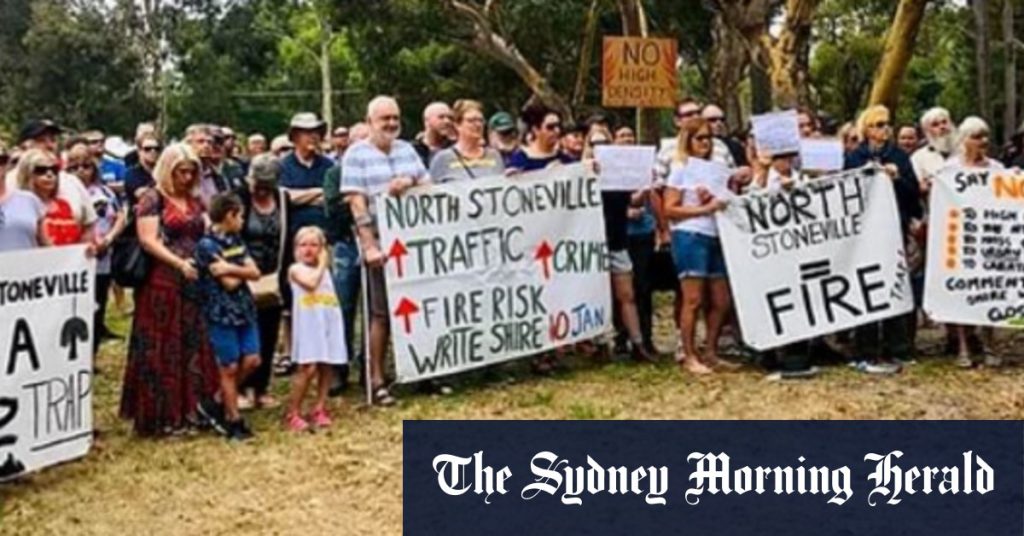The proposed North Stoneville housing development, a project championed by property developer Satterley, has ignited fierce community opposition and sparked calls for federal intervention. The project, which envisions a 535-hectare townsite, has received environmental approval, a decision now under intense scrutiny. Community groups, including Save Perth Hills, and the Mundaring Shire Council, are contesting the approval, arguing that it rests on outdated environmental surveys that fail to account for significant ecological changes in the region. They assert that the approval process overlooked critical factors such as the loss of urban tree canopy, the inadequacy of proposed offset programs, and the increased risk of bushfires exacerbated by climate change. Their efforts are focused on urging Tanya Plibersek, the Federal Environment Minister, to revoke the approval. They maintain that the project poses an unacceptable threat to biodiversity, particularly to endangered species like the Black Cockatoo and Chuditch, and exposes future residents to heightened bushfire risk. The community’s fight against the development underscores a broader concern about the influence of property developers and the potential prioritization of development over environmental protection.
The heart of the dispute lies in the environmental impact assessment underpinning the project’s approval. Critics argue that the surveys, conducted seven years prior to the approval, are obsolete and fail to capture the dramatic environmental shifts that have occurred in the intervening period. Perth has experienced record-breaking hot summers and prolonged dry spells, contributing to significant forest decline in the southwest region. These changes, they argue, necessitate a reassessment of the project’s potential environmental consequences, particularly its impact on local flora and fauna. Furthermore, the proposed offset program, designed to mitigate the ecological damage of the development, is deemed inadequate to compensate for the loss of critical habitat. The community’s concerns reflect a growing awareness of the interconnectedness of environmental issues and the urgent need for sustainable development practices.
The looming threat of bushfires adds another layer of complexity to the debate. The North Stoneville area has a history of devastating bushfires, including a 2014 inferno that destroyed 57 homes. Opponents of the development argue that building a new townsite in this fire-prone area would expose residents to unacceptable risk, especially in light of the escalating threat of climate change-induced bushfires. They point to the rejection of a previous proposal in 2020 due to inadequate bushfire mitigation measures. This historical context emphasizes the ongoing tension between development pressures and the imperative to safeguard communities from natural disasters.
The community’s fight against the North Stoneville development is not new. The project has been met with resistance for over three decades, underscoring deep-seated community concerns about the environmental and social impacts of the proposed townsite. This protracted struggle highlights the persistent tension between development interests and community values, raising questions about the effectiveness of existing planning processes in balancing these competing priorities. The community’s determination to protect the Perth Hills region reflects a broader movement advocating for sustainable development that respects ecological limits and prioritizes community well-being.
Save Perth Hills and the Mundaring Shire Council are pursuing multiple avenues to challenge the project’s approval. They are exploring legal options, including a potential judicial review, and are confident of solid grounds for challenging the decision. They have also directly appealed to Minister Plibersek to revoke the approval, citing the outdated environmental surveys and the project’s incompatibility with the region’s ecological and social values. Their efforts reflect a growing trend of community activism and engagement in environmental decision-making processes.
The community is mobilizing to amplify its voice and exert pressure on decision-makers. A community rally is planned for February 2024 in Mundaring, coinciding with the lead-up to state and federal elections. This strategic timing aims to raise the profile of the issue and leverage public attention to influence political outcomes. The rally will serve as a platform for community members to express their concerns and demand greater accountability from elected officials. This collective action underscores the power of community mobilization in shaping policy and protecting local environments. The outcome of this ongoing battle will have significant implications not only for the future of the Perth Hills region but also for the broader discourse on sustainable development and community engagement in environmental decision-making.

